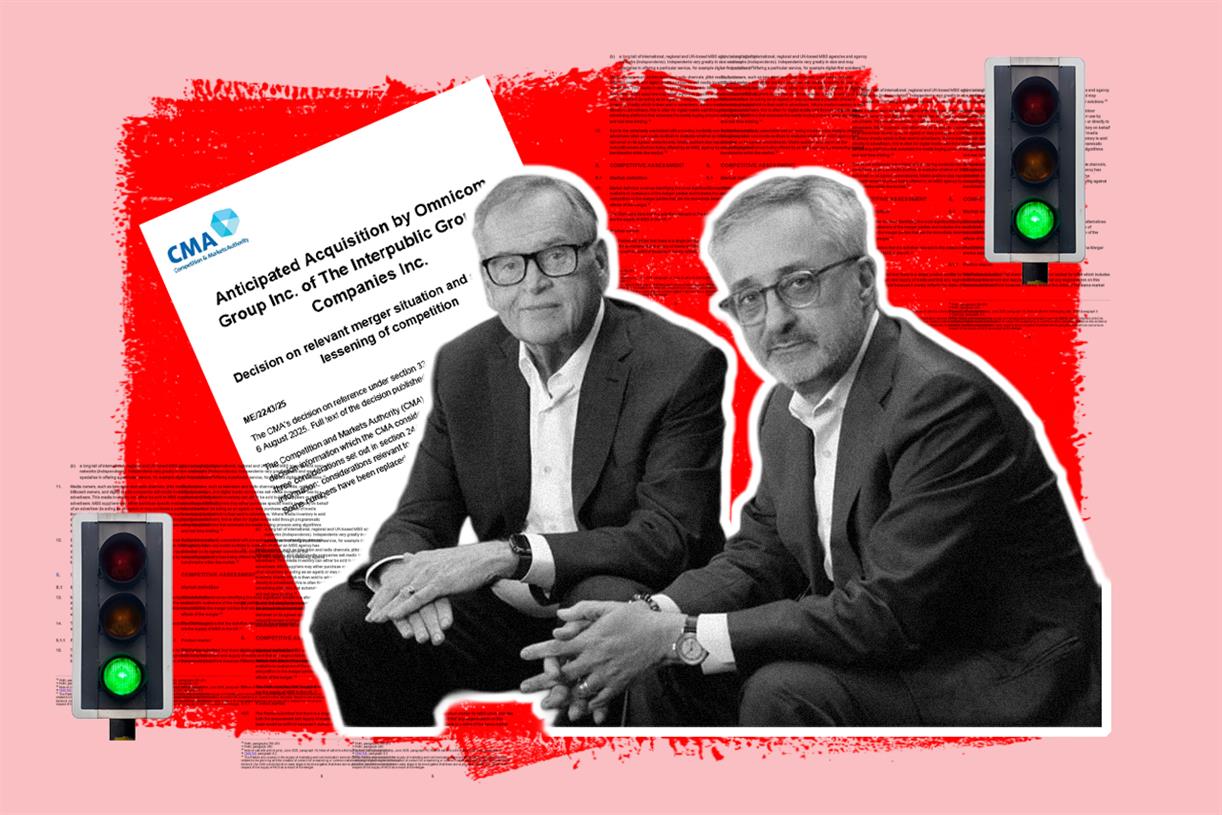Unlearn Management, Relearn Being Human
When we lead from the awareness that we all have more commonalities than differences, we can create a beneficial ripple effect for those we lead. The post Unlearn Management, Relearn Being Human appeared first on Mindful.

Management and leadership: The two words may seem synonymous, but in practice they are quite different. Management is about managing others. Leadership is about seeing and hearing others, setting a direction, and then letting go of managing what happens next.
If you want to be an effective leader, there are a few critical things you need to understand: First, nobody wants to be managed. Second, who you are is more important than how smart you are. And last, leadership is all about developing and enabling meaningful and trusting human relationships.
Regardless of hierarchies and power structures within a company, we are all first and foremost human beings. We want to connect on a human level with each other. Many leaders rise through the ranks thanks to a mastery of management skills—setting direction, managing plans, and solving problems—and less so the interpersonal and relational side of leadership. But massive disruptions to the workplace in the past few years have upended the role of leaders and demand an integration of both the performance and the human aspects of leadership. Employees are looking for leaders who can make tough decisions and drive results, but at the same time create an environment that provides flexibility, connection, and a sense of belonging. Now is the time to unlearn management and relearn being human first.
Opening to Our Common Humanity
To be more human in the workplace, you must remember and acknowledge that we are all alike in our shared desire to be happy and to avoid experiencing difficulties. But we’re also alike in that, regardless of our role or identity, life doesn’t spare us from suffering. We all have expectations of life that are not met. We all want to be kind to others, but sometimes find ourselves impatient and frustrated. We all do our best. And, yes, we all fall short. This is our common humanity.
We’re not managing employees, we’re leading humans.
Our common humanity must inform how we lead. How we lead must change and adapt to the changes in the world. Today, there is little to no separation between work and life: as work has become more integrated with life, life has naturally become entangled with work. And when life is part of work, it brings all its associated emotions and feelings into the workplace. We as leaders must embrace this fact. We’re not managing employees, we’re leading humans. For many of us, this is a new way of leading, one that the last two years have forced us to face. And as we readjust to a new and continually changing world of work, it’s a reality we’ll have no choice but to embrace.
If that sounds complicated, read on—because fortunately, as research shows, our own brains are already well designed to adapt to a human-centered style of leadership.
We Are Hardwired for Compassion
In our work at Potential Project, we’ve seen that one of the most powerful ways to bring more humanity into your work is to practice compassion—what we call wise compassionate leadership. Only recently has the idea of compassion in the workplace, and especially within leadership, become a part of the conversation. But really, it should be at the center of everything we do at work.
Evolutionarily, humans have survived for the past thousands of years by cooperating and caring for each other. It is compassion and care, more than competition, that have made us the dominant species on the planet. Recent studies show that when we act in compassionate and altruistic ways, our brains and nervous systems reward us. When we show compassion for another person’s suffering, it leads to a sudden release of dopamine, the motivational ‘feel good’ neurotransmitter that delivers a rewarding sensation within the brain and body. Oxytocin is also released when showing compassion, making us feel connected to others and helping us to better engage.
In short, from a neurological perspective, we are wired to be rewarded and feel good when we are compassionate. But if compassion is in our DNA and foundational to our survival, why are we also prone to shutting off emotions at work, and behaving in selfish, self-centered ways? Although we are hardwired for compassion, we also have default wiring that looks out for our own survival. Our ego (that is, our sense of being an individual self) is designed to protect us and help keep us safe, and sometimes it can get in the way of our natural ability to care about others. This can be especially true in the workplace when we are under pressure and there is so much focus on performance and success. This brings out the “thinking manager” and puts the “feeling leader” in the backseat. Little good comes from this place, and so we as leaders must chart a different course.
How Universal Compassion Humanizes Leadership
The answer lies in the practice of universal compassion. Different from what you might understand as basic compassion—the understanding of another’s pain and an intention to help them address it—universal compassion has a much greater scope. It comes out of a universal wish for others to be happy. This type of compassion occurs when we do something good for another that is perhaps unexpected by the recipient. It has no strings attached, no reciprocal expectations, and no self-serving intentions. Universal compassion comes from an inner drive to be of benefit to others.
Universal compassion comes from an inner drive to be of benefit to others.
In a leadership position, this doesn’t just equate to being nice to others. It means delivering hard news in a kind way. It means staying present in frenzied moments. It means providing structure and clarity so that your team understands what is expected of them. It means being courageous in the face of adversity because that’s the best thing to do for the people you lead.
While that may sound more difficult than the traditional “managing” style, the results are impossible to ignore. Our research shows that employees who experience their leader as wise and compassionate have 86% higher job satisfaction, 61% higher organizational commitment, are 77% happier with their leader, and feel 64% less burned out. This is a massive impact in a person’s life, coming from the simple fact that their leader is showing wise compassion.
It’s important to understand that universal compassion is not limited to those we care for. In fact, universal compassion is open, expansive, and reaches out to those we find most difficult—the challenging team member, the peer who sometimes undermines our hard work, or the people from another department who are difficult to work with.
You may be asking yourself, “Why should I have compassion for a person who is hard to deal with?” The answer is simple: because of common humanity. They too want to be happy, but have struggles, just like you do. When faced with people who have caused you challenges, try for a moment to see things from their perspective. What exactly has challenged them, and how might you help?
When you’re able to see situations through the lens of others, especially those who you find difficult to relate to and those who cause you problems, you benefit greatly. As Hugh Verrier, CEO of global law firm White & Case, said, “Compassion makes you a much better and more productive leader because it makes you see reality more clearly. When you have compassion for people that are different from you, that compassion makes you see the world from their perspective.” This type of compassion helps expose your biases and gives you a more nuanced perspective. As Verrier added, “Compassion eliminates your ego and makes you see yourself with greater insight. Compassion is the touchstone of wisdom in leadership.”
4 Ways to Lead with Humanity and Compassion
While universal compassion is not easy, it will be foundational in your quest to explore the human side of leadership. Here are a few things to consider when trying to bring more compassion to your leadership:
Acknowledge your common humanity. Remember: We are all alike. We each face highs and lows, joys and heartaches, that connect us all to the experience of being human. Acknowledging our common humanity helps to level the playing field and allows us to relate to our teams as one human to another.Be present. In a world where distractions are omnipresent, make a deliberate effort to practice presence. Focus on the person you’re with, what they’re thinking, how they’re feeling, and any factors that may be contributing to their experience at work.Actively choose to do the hard things in a human way. Being a leader involves a lot of difficult decisions and uncomfortable conversations. Have the courage to face these moments with kindness, clarity, and humanity. Listen well. As the saying goes, we have two ears but only one mouth. This means we can (and should) listen twice as much as we speak. This is the case for compassionate, human leaders. Only by listening can we understand. And only by understanding can we lead in a way that enables success for all.When you can start to lead with more compassion, you’re training your own humanity to show up and lead at work. And when you lead as an authentic human being, you’ll improve followership, commitment, and a sense of belonging for all.
This article is adapted from the book Compassionate Leadership: How to Do Hard Things in a Human Way, by Rasmus Hougaard and Jacqueline Carter (Harvard Business Review Press, 2022).
Why We Need Vulnerable Leaders
It can feel scary to admit that you might not have all the answers but as Ryan Vaughn writes, the most successful people are those who, faced with uncertainty move forward anyway.
Read More

 ValVades
ValVades 
































